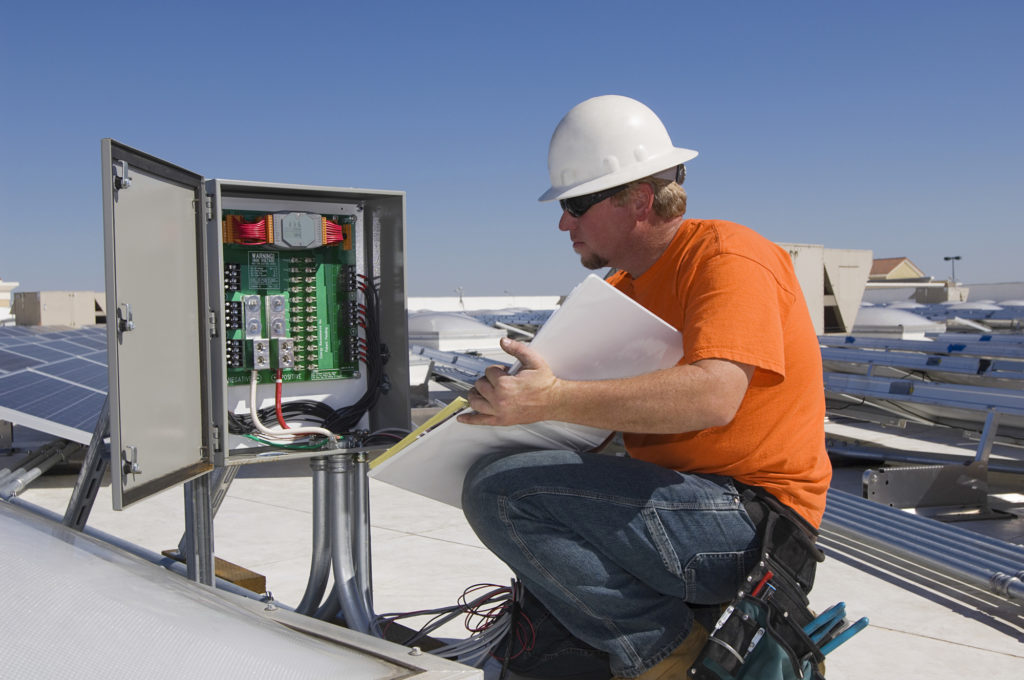
Lights flickering?
Circuit breaker popping regularly?
Electrical issues are common in homes and knowing how to diagnose them is something that everyone should spend some time learning.
Some of it you’ll even be able to fix yourself.
We’ve compiled some easy fixes that you can do yourself and the information to know when it’s time to call a professional. Read on and we’ll show you exactly what you need to know.
Popping Breakers
If you’re finding that your circuit breakers pop on a frequent basis then you should be able to figure out the problem yourself.
Circuit breakers exist to protect the wiring in your home. If you get too much amperage in a wire it can destroy the insulation or even catch fire. Short circuits can also be a major problem.
The first thing you need to do is take a look at the devices on the circuit in question. Some of the most frequent culprits are strong power tools and things like microwaves which require some pretty impressive amperage.
The breaker should be labeled for its total amperage. The current draw on each device is measured in amps and should be clearly visible somewhere on the appliance.
Add everything up, if you’re exceeding the rating on the breaker then you’ve found your problem.
If you’re still experiencing issues while staying under the amp rating of the circuit breaker then you’re going to need to call a professional immediately.
This means you have a short circuit issue in the wiring and there’s no safe way to DIY a fix for it. Ideally, you’ll also be able to leave the circuit off entirely until a professional can look at it.
Flickering Lights
One of the most common complaints in homes is flickering lights.
The problem can range from complex to extremely simple. Many people may want to take a look before they go through with calling in an electrician.
If your lights are flickering when you turn on an appliance with a high load, such as a washing machine or microwave, then you’re probably in the clear. It happens, it just means that there’s a bit of extra voltage draw coming through the wires.
It may also happen when you just start smaller appliances. Messed up bearings cause an appliance to work harder to get fired up.
The serious issues that occur will often cause lights to flicker even when there’s nothing new going on in the system.
The causes vary quite a bit:
- Loose connections can be diagnosed at home, look inside the fixture and ensure the wire nuts are tight after turning off the breaker.
- Switches can also be to blame, while the breaker is off you can make sure the wires in the back of the switch are still connected well.
- Other causes, which require professional attention, include old or faulty wiring, switches, or even circuits. If the above doesn’t fix it then call an electrician.
For the most part, all that can be done at home by your average DIYer is to check all of the connections if you can’t tie the problem to increased load on the circuit.
Recessed Lights Turning Off
Recessed lighting turning off randomly can be a pain.
Thankfully, it’s actually not a serious issue unless you have the know-how to bypass the safeties.
Recessed lighting, due to its position in vulnerable areas, has built-in turn-offs if they get too hot. Most of the time this will only occur if the light has been on for an extended period but if it becomes too big of a problem then you may want to talk to an electrician.
The most common cause is simply improper installation which can be fixed quickly by a professional.
In some cases, you may just end up having to not use recessed lights in that area, however, unless something can be done about the surrounding insulation.
Buzzing Circuit Breakers
There are three major ways that a circuit breaker can buzz.
A light buzzing that can be heard when you’re near the breakers is usually not a problem. Don’t go messing around in the box, however, if the noise is truly troublesome then call an electrician.
A constant buzzing with the occasional snap, crackle, or pop indicates that you’ve got a loose wire or connection. In this case, you’ll probably want to call an electrician as soon as possible since the wire can arc and cause a fire.
An overly loud buzzing?
That’s a serious problem.
It means that the circuit breaker is malfunctioning and not popping to break the circuit when the load is too heavy.
Call a professional immediately.
It’s important to not work inside the circuit breaker box if you’re not a professional. You can be exposed to extreme voltage leading to serious injury or death if you don’t know what you’re doing.
Dealing With Electrical Issues
While some minor electrical issues in the home can be fixed it’s an unfortunate truth that even the most adept DIY-ers can end up in serious trouble if they’re not careful.
If you have to deal with anything other than a loose connection it’s probably time to call in an electrician. It’s expensive but it’ll prevent serious injury on your part and many of the common electrical problems can lead to fires and other structural damage if left unchecked for too long.
You’ll need to find a reputable company, of course. View here for a good example.
Looking for more around the house tips? Check out our Home and Garden section!

